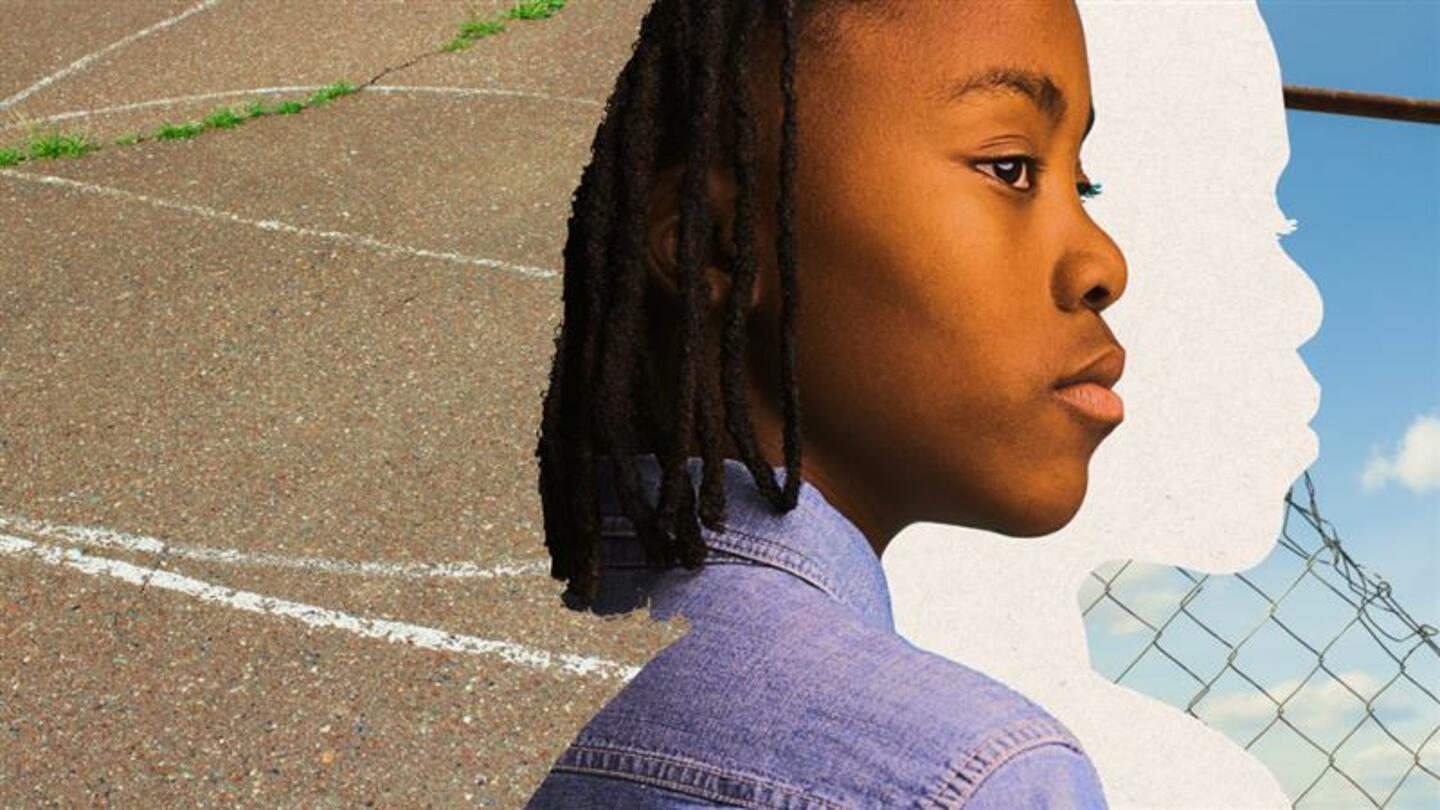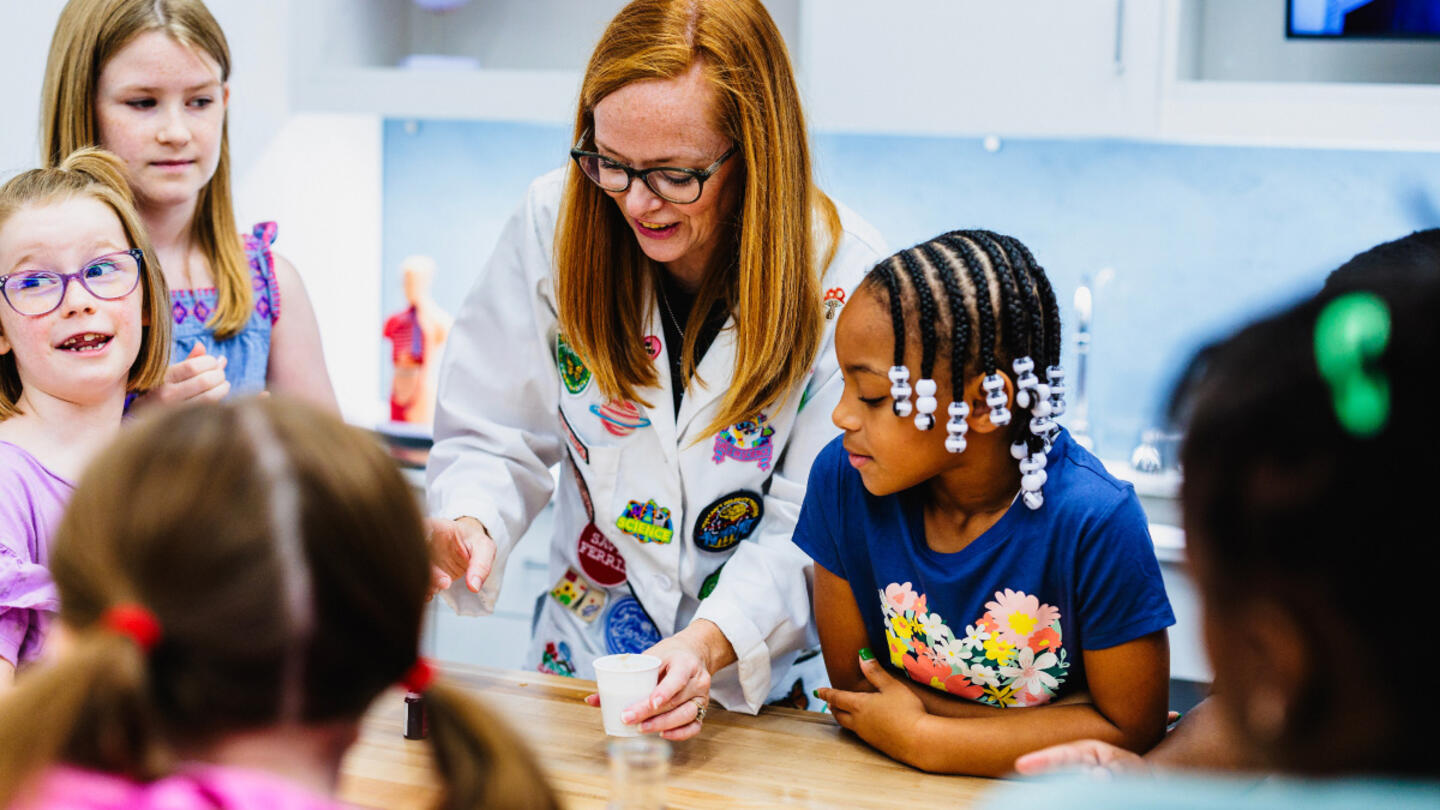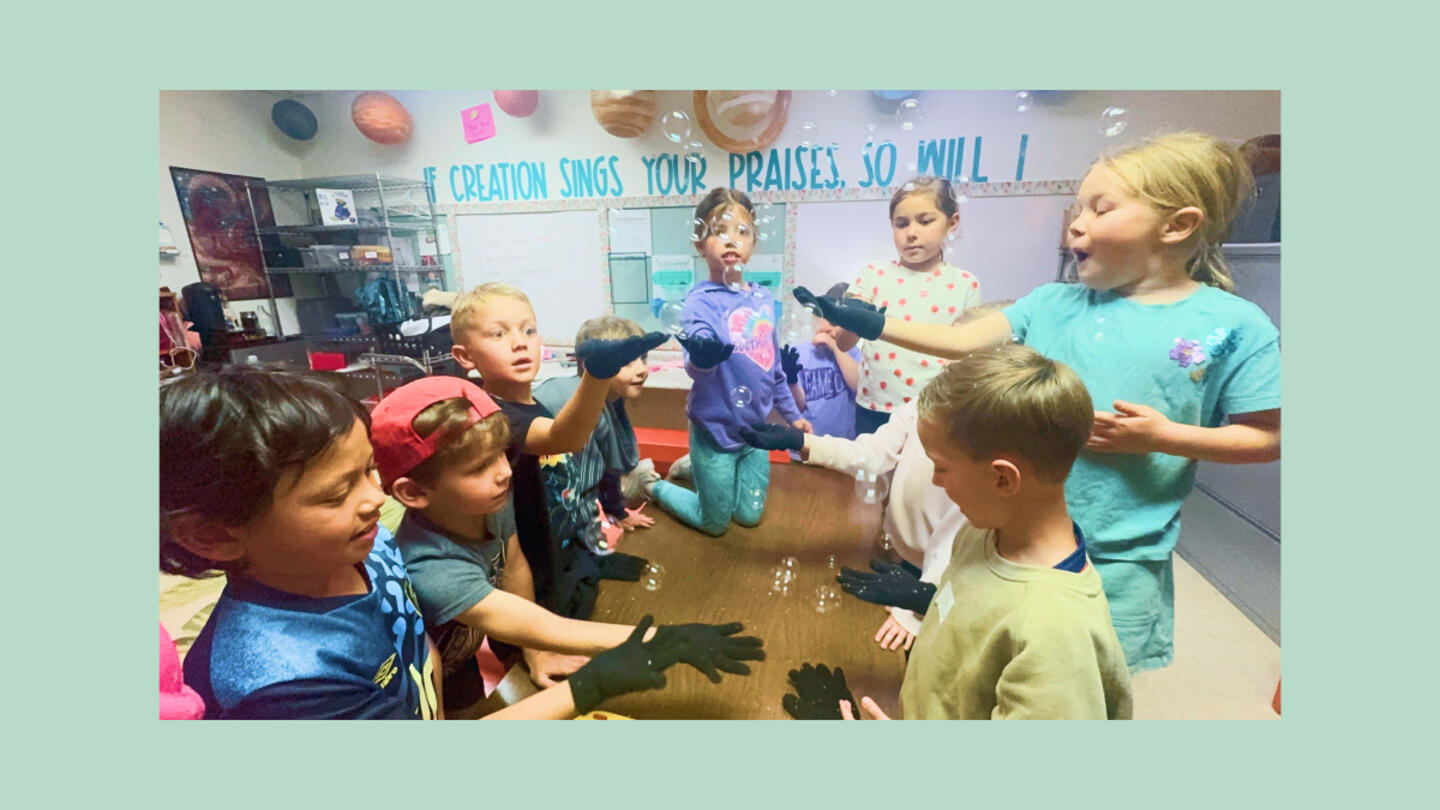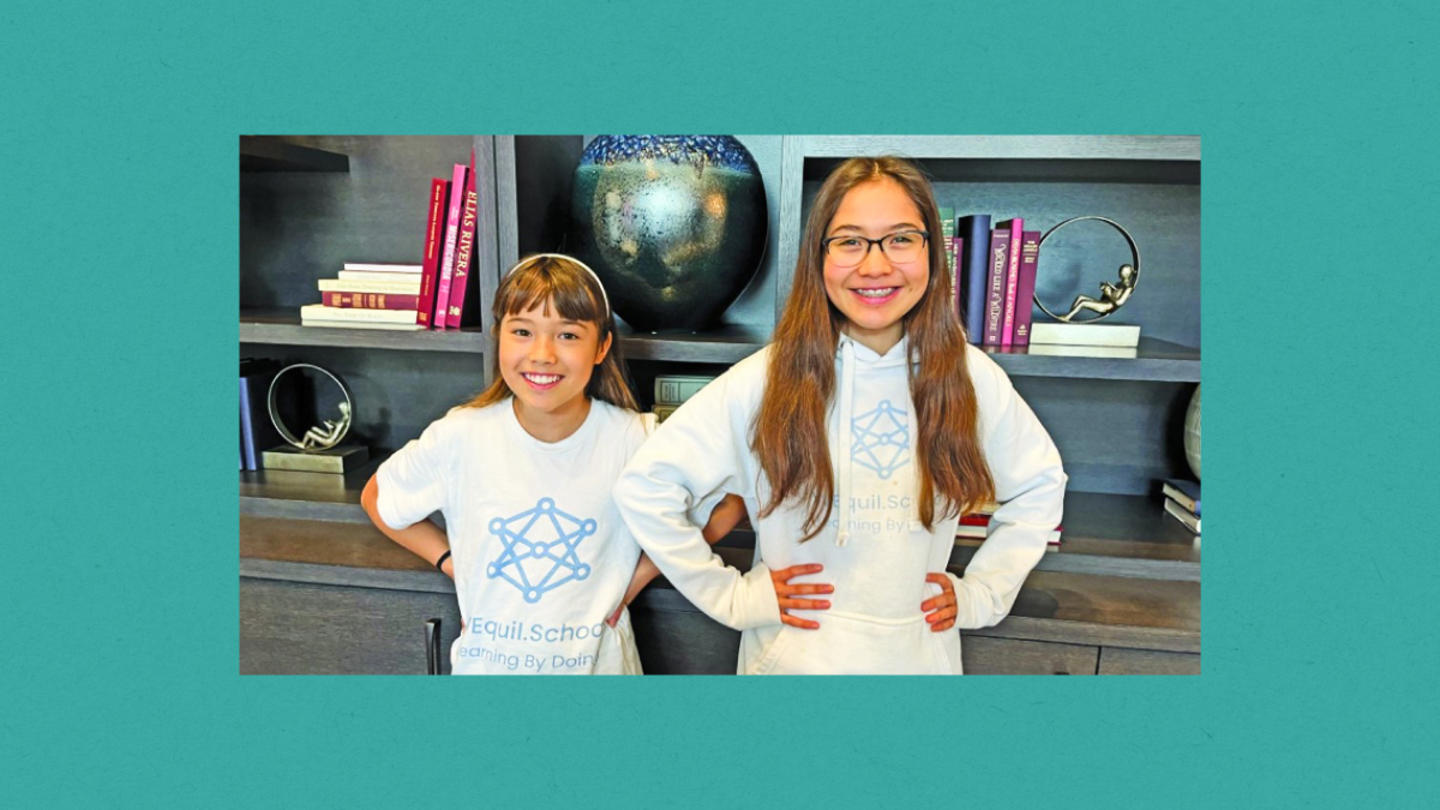As difficult as the pandemic was, in many ways, it was a boon for innovation, particularly for independent education entrepreneurs.
Take Sumay and Aila Lu. The sisters didn’t love the remote learning options offered by their school system, so they created their own school. “When the pandemic hit, we knew we needed to find a different solution for our education,” said Aila. “We started creating projects that we were interested in and presenting them to our parents and friends. We found that we were learning 10 times faster and retaining our knowledge, as well. And so we started offering that to other kids.”
The project caught on among families looking for self-guided educational opportunities. Now Aila and Sumay, ages 12 and 14, are proving kids are capable of contributing in their communities, and they’re creating tools to help other kids do the same.
The two founded the online WEquil School and WEquil App based on this key insight: Students learn better by doing real things and applying knowledge to create and add value to the world. WEquil students create projects — videos, blog posts, slide shows, podcasts, lesson plans — on subjects that interest them and then share them in private learning pods and other education-focused communities on WEquil App. They can also use the app to start a business, host a club, or teach a class.
“You have all these things that you're doing that you're passionate about,” said Sumay, CEO of WEquil App. “How can you make that into something real that you can share with other people?”
A social media platform that encourages creativity
Sumay and Aila noticed that many homeschoolers turn to Facebook, YouTube, and other social media platforms to connect with fellow homeschoolers. While these have been the dominant platforms for connecting online, they’re not conducive to education.
“Facebook wants you to keep scrolling,” said Sumay. “Oftentimes, you'll find that users regret the time they spent on the platform. That’s the last thing we want.”
The WEquil App has some hallmarks of a social media app. Users from all over the world can connect intentionally around shared interests and goals. Members create “rooms” — focused communities, such as learning pods, clubs, classes, microschools, and businesses selling educational products and services.
“The mission is to give people a platform where they're focused on creating valuable and useful and novel things,” said Aila, CEO of WEquil School.
To that end, WEquil App is perhaps more notable because of what it doesn’t include. There are no built-in addictive features, no mindless scrolling, and no ads. Algorithms don’t regulate content, users do. Content only gets shared if users find it valuable. “The way people discover content on the app is when it's referenced in rooms, in curriculums, on somebody's digital resume,” said Sumay. “All of this is based on genuine connection. You're not going to share something that isn't really meaningful to you.”
So far, WEquil School has served more than 600 students since the pandemic, and the app, which launched last year, has upwards of 1,300 registered users. “We're trying to create this global school network of families, educators, and entrepreneurs where they can all help each other,” Sumay said. “We want to maintain a culture of creation and facilitating wholesome and meaningful connection.”
For example, Rebecca Ferree left the public school system after 15 years of teaching so she could homeschool her own children. She uses WEquil App to host a community called, “Wired Differently,” where parents, students, and educators connect with each other and find resources for neurodivergent learners.
“When they win, we win,” said Aila, referencing the user-aligned business model. Unlike other platforms that use ads as their primary source of revenue, WEquil only generates revenue via in-app purchases between users, which means when users are successful, WEquil is successful.
Sign up for Stand Together's K-12 newsletter and get stories, ideas, and advice from changemakers who are transforming education across the country.
‘Kids are more capable than we sometimes think they are’
The sisters know what it’s like to be kids with big ideas. It’s something their parents encouraged early. “From the beginning, [our parents] have had this mindset of empowerment and that kids are more capable than we sometimes think they are,” said Sumay. She and Aila have imbued that mindset into the students at WEquil School, now hosted on the WEquil App where kids can create just about any type of project or business.
One 10-year-old WEquil member started a club called, “Focus Friends” where she helps other kids learn how to improve their focus. Another student, age 7, created a chess club. He teaches chess lessons and facilitates meetups for kids with a shared interest in the game.
“When you give kids the opportunity, they can do some amazing things,” said Aila. “They're creating businesses. They're sharing their creations with others. They're so empowered, and they're doing real things. A big part of what WEquil App is doing is giving them the resources and the safe place where they can share what they're learning. They just take off.”
Which is exactly what Sumay and Aila have done — they’ve taken off. For them, WEquil has been a powerful learning experience because it is so easy, so tangible, and so real. Instead of completing curriculums or teacher-assigned tasks, the sisters learn by doing real things, applying their knowledge, talents, and passions to create hundreds of projects that help real people in the real world.
“Doing things like starting a business and teaching a class — you're learning a lot from those experiences, not only just the knowledge that is taught in school, but skills like public speaking, communication, collaboration, and learning how to use AI tools like ChatGPT to enhance your work instead of being a substitute — it's been an incredible learning opportunity for us doing all of these things,” said Sumay.
“I can't think of anything else I'd rather be focusing on at this moment,” said Aila. “It's such a great thing to devote myself and my passion towards.”
“It’s something we really want to help bring to other young people,” said Sumay.
***
WEquil School is supported by VELA, which, as part of the Stand Together community, supports everyday entrepreneurs who are boldly reimagining education.
Learn more about Stand Together’s education efforts and explore ways you can partner with us.

‘We want these boys to know that regardless of where they come from, they still can be excellent.’

This colearning space has the potential to bridge the divide between public and private education.

New Johns Hopkins data shows homeschooling’s recent surge has transformed the education landscape.
Step 1: Find the best learning environment for your child. Step 2? Figure out how to pay for it.
